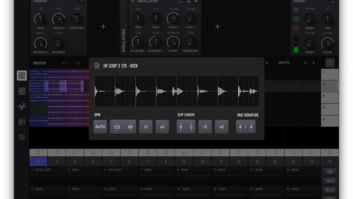The Secure Digital Music Initiative (SDMI) is intent on stopping the threat, both real and perceived, of online music piracy with a series of guidelines for secure digital music distribution, announced just last week. The SDMI is meeting today and Thursday to ratify the guidelines, which lay down a two-phase strategy for how music and technology companies can develop devices that prevent improper copying of music files. Once this is done companies can move forward in their development of SDMI-compliant devices that will work with encryption protocols, or “watermarks,” for music files that consumers would download using computers or other dedicated products.
Hilary Rosen, president and CEO of the Recording Industry Association of America (RIAA), said she was encouraged by the SDMI’s announcement. “I applaud the work of the more than 100 information technology, consumer electronic and music companies who worked together,” she said. “This announcement brings consumers one step closer to the online music market they want.” The RIAA founded the SDMI late last year.
Phase one of the system commences as soon as the SDMI specifications are adopted, which presumably will happen by tomorrow. During phase one, SDMI compliant portable devices can accept music in all current formats, whether protected or unprotected. This includes the MPEG-1 Layer 3, or MP3, format, which is the most popular distribution format available thus far and the format used by Diamond Multimedia’s top-selling portable Rio player. A competing format, called Liquid Audio, already claims to be fully compliant with the SDMI specs and just last week announced an agreement with Iomega Corp. for direct download options to Iomega Zip, Jaz or Click! disks. (It should be noted that the introduction of the Rio player is what first spurred the RIAA to form the SDMA. The Rio’s ability to play MP3 files, which themselves offer no copyright protection, made record companies very nervous.)
Phase two of the system begins when a screening technology is available to filter out pirated music. When phase two begins, consumers can upgrade their computer software to receive both protected SDMI files and existing unprotected music.
“The SDMI specification will allow for the development of consumer-friendly systems,” said Jack Lacey, chairman of SDMI’s Portable Device Working Group. The specification, he says, “permits the immediate introduction of portable devices that work for consumers today and offers even more choices for the future.”
For more information see:
MP3
SDMI
RIAA
Liquid Audio
Iomega
The Rio player
And other players like the MPMan, the Nomad and the Empeg Player.













